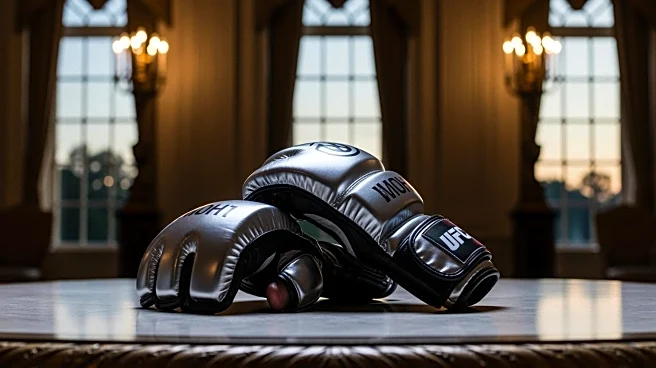What's Happening?
Former UFC middleweight champion Robert Whittaker has expressed interest in fighting Sean Strickland at a unique event held at the White House. Whittaker, who has been eager to face Strickland, sees this
as a monumental opportunity to compete in a historic setting. He believes the fight would be significant not only for its location but also for its potential impact on his career, as Strickland is ranked third, which could elevate Whittaker's standing in the UFC. Whittaker's recent fights include a loss to Reinier de Ridder by split decision and a submission defeat to Khamzat Chimaev. Strickland, on the other hand, last fought in February 2025, losing to Dricus du Plessis by unanimous decision.
Why It's Important?
A fight at the White House would be unprecedented, potentially drawing significant media attention and public interest. For Whittaker, this fight represents a chance to re-enter the conversation for top contenders in the UFC middleweight division. The event could also serve as a platform to showcase MMA to a broader audience, possibly influencing public perception and increasing the sport's popularity. The unique setting could attract new fans and sponsors, benefiting both fighters and the UFC. Additionally, it could set a precedent for future high-profile events in unconventional locations.
What's Next?
If the fight proposal gains traction, logistical planning for such an event would be crucial, involving coordination with government officials and security measures. The UFC would need to consider the implications of hosting a fight at such a significant venue, including potential political and public reactions. Whittaker and Strickland would likely begin preparations for the fight, focusing on training and strategy. The UFC might also explore promotional opportunities to maximize the event's impact, potentially involving media campaigns and partnerships.
Beyond the Headlines
Hosting a fight at the White House could spark discussions about the intersection of sports and politics, raising questions about the appropriateness and implications of such events. It might also lead to debates on the commercialization of historic sites and the role of sports in cultural diplomacy. The event could influence future decisions on venue selection for major sporting events, potentially encouraging other sports organizations to consider unconventional locations.










